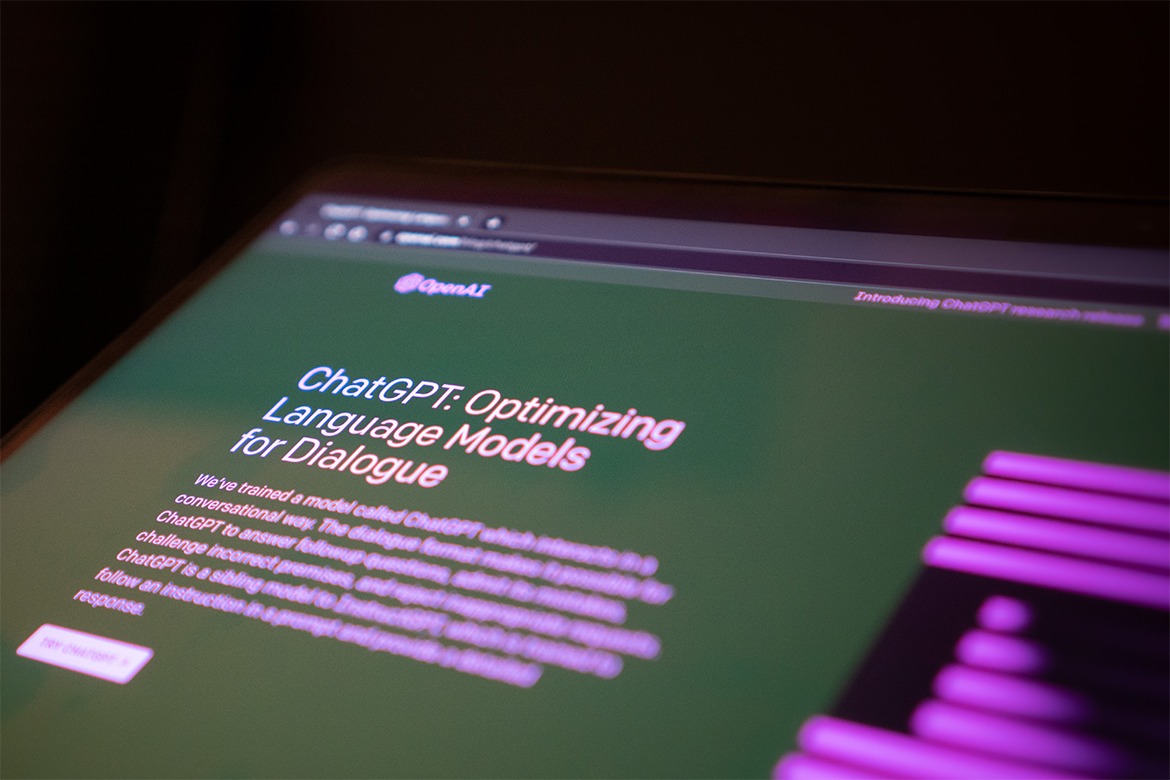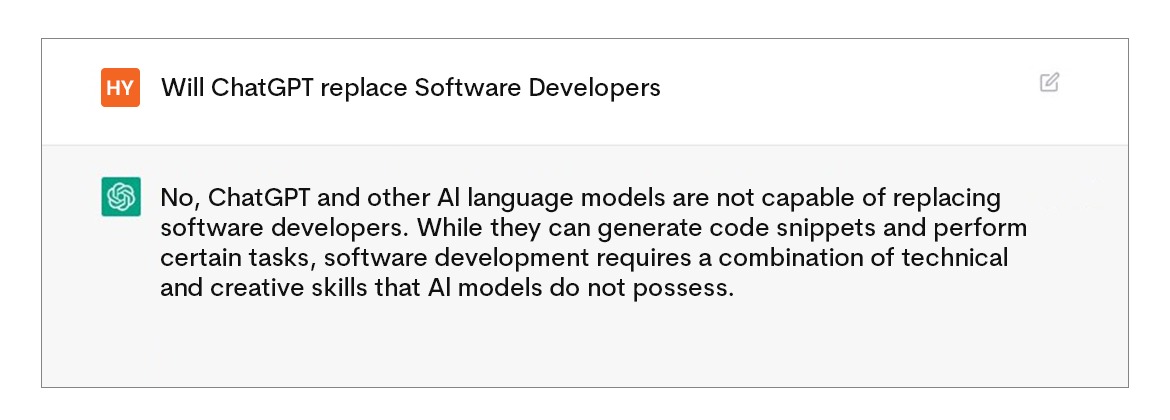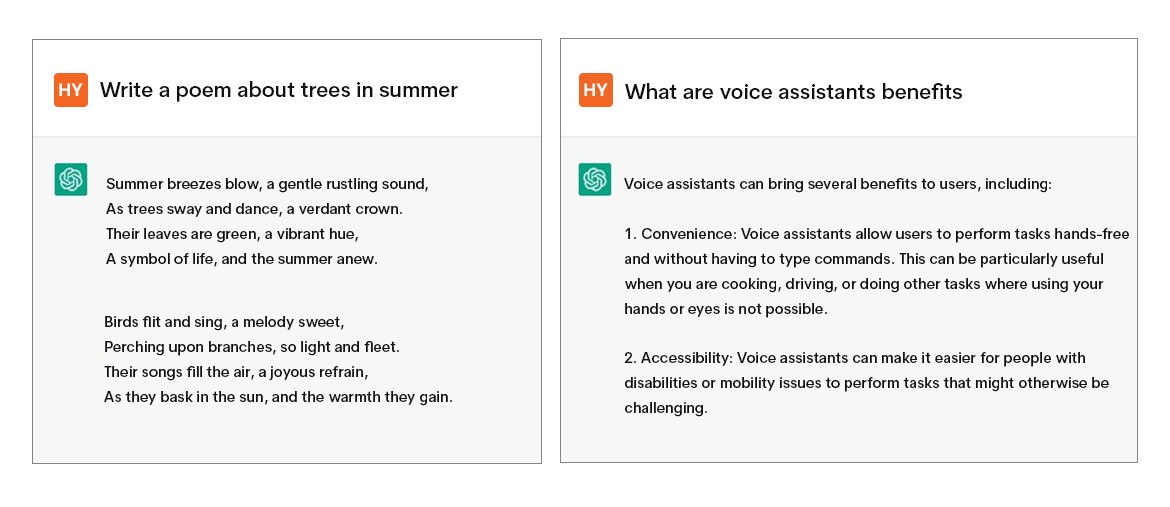
We have all been hearing about ChatGPT and though the Beta version was released late last year in November 2022, It has already become a buzz-worthy topic. Many of us have surely tried it out but what will be the effect of this technology in the short term as well as long term?
ChatGPT uses Generative AI and Natural Language Processing (NLP) and is developed and launched by the American artificial intelligence research laboratory Open AI.
What has surprised many is that it is also capable of writing computer code, and can create web pages, applications, and even simple games using different programming languages.
Experiments have shown that it can even compose poems, and music as well as write articles and blogs on various topics. While this seems astounding is it all really true? So will this technology replace software developers and content writers or will it assist them? There are a lot of questions but the answers might not be that straightforward.
The effect of ChatGPT on software development and programmers
As with all AI technology, while there is an equal amount of praise for it, there are also limitations to the technology. It does not have the capability as of now to make programmers or software engineers redundant.
This is because it only has the ability to write simple programs. If it has to make any complex coding or high-level business application or a sophisticated gaming app – that is beyond its current capability. However, AI tools like ChatGPT will definitely become proficient coders in the next decade.
ChatGPT cannot create software that gives a competitive edge over competitors nor can it compete with human creativity.
Let’s ask this question directly to ChatGPT. “Will ChatGPT Replace Software Engineers?”

Software developers have nothing to fear for the moment though AI capabilities are expected to grow. The Q&A format can be really helpful to developers. For instance, if you ask how to install Python for data science, it will go into detail on how and where to download and install Anaconda, and what command prompt to type to check if the installed packages are listed correctly. As you can see from this example, software folk will use it as a virtual assistant as will others seeking out helpful information.
ChatGPT and other AI language models can assist software engineers in several ways:
1. Code Completion and Generation: AI models can help software engineers write code faster by generating code snippets and suggesting completions.
2. Bug Detection: They can be trained to detect bugs and vulnerabilities in code, saving time and improving the overall quality of the software.
3. Documentation Generation: AI models and natural language processing (NLP) can generate documentation, freeing up software engineers to focus on other tasks.
4. Integration with IDEs and Tools: If AI technology models are integrachatgptted into development environments and tools, it will make it easier for software engineers to access their capabilities.
The advantage of ChatGPT and other AI Tools in 2023 like
While ChatGPT developed by OpenAI, will not be responsible for unemployment, what we are already seeing is a shift in focus to AI technology. ChatGPT is a chatbot and a very good one at that, it provides human-like responses to user queries. Within the next 6 months, we will see an improvement in chatbot capabilities and more customer service voice assistants will make their foray into the market. In fact, the ChatGPT AI technology is not new, Ada, the company that provides customer support tools to Meta and Verizon is also using GPT-3, the language model that drives ChatGPT.
Search as we have known it with Google is also going to evolve. In fact,Google has also announced Bard A.I.in response to the threat it sees from ChatGPT. Microsoft invested over $10 billion into the startup behind the hugely popular ChatGPT. We will see a war of the giants and it is expected to benefit all of us.
ChatGPT and content creation

It’s amazing how well the AI Q&A tool can create a piece of a poem on any topic. So it should be great in writing a blog or article without needing a content writer right? Wrong. At present it is an assistive research tool only.
The answers generated by ChatGPT, while usually informative, do have some drawbacks:
- Uses the same repetitive phrases over and over again.
- It can only answer a question directly, unlike a blog that gives related information.
- While it can make recommendations to specific services, you usually won’t find links to specific websites.
- It cannot support the information it provides with images and humans are visual creatures.
- It cannot provide citation or references for the information it provides.
- ChatGPT answers can often have a “hallucination” effect – This is often observed in AI language models, the text seems plausible but wen looked at deeper actually makes no logical sense.
Since it is in the beta version, the information provided is also not current. It is trained in data that is older than 2021. While this can change and its capabilities will improve, there is another downside. Google says it will penalize any machine-generated content. As long as Google Search has the market advantage, this is a critical point.
It is easy to know that content from ChatGPT is generated by a machine. Human-written content has emotion and uses idioms like ‘every cloud has a silver lining’ while Open AI cannot. Have a look at the example of a poem as well as an answer from ChatGPT to understand it better.
While no one has a crystal ball, the future is definitely AI. Just as with the advent of computers, some job roles became redundant but more new opportunities are created. New skills and competencies will evolve. For the time being, software development and content creators provide a number of skill sets that are still needed. At iTech, we are excited to be part of the AI technology environment.
As with all AI technology, while there is an equal amount of praise for it, there are also limitations to the technology. It does not have the capability as of now to make programmers or software engineers redundant.
This is because it only has the ability to write simple programs. If it has to make any complex coding or high-level business application or a sophisticated gaming app – that is beyond its current capability. However, AI tools like ChatGPT will definitely become proficient coders in the next decade.
ChatGPT cannot create software that gives a competitive edge over competitors nor can it compete with human creativity.
1.Code Completion and Generation: AI models can help software engineers write code faster by generating code snippets and suggesting completions.
2.Bug Detection: They can be trained to detect bugs and vulnerabilities in code, saving time and improving the overall quality of the software.
3.Documentation Generation: AI models and natural language processing (NLP) can generate documentation, freeing up software engineers to focus on other tasks.
4. Integration with IDEs and Tools: If AI technology models are integrachatgptted into development environments and tools, it will make it easier for software engineers to access their capabilities.
While ChatGPT developed by OpenAI, will not be responsible for unemployment, what we are already seeing is a shift in focus to AI technology. ChatGPT is a chatbot and a very good one at that, it provides human-like responses to user queries. Within the next 6 months, we will see an improvement in chatbot capabilities and more customer service voice assistants will make their foray into the market. In fact, the ChatGPT AI technology is not new, Ada, the company that provides customer support tools to Meta and Verizon is also using GPT-3, the language model that drives ChatGPT.
Search as we have known it with Google is also going to evolve. In fact, Google has also announced Bard A.I. in response to the threat it sees from ChatGPT. Microsoft invested over $10 billion into the startup behind the hugely popular ChatGPT. We will see a war of the giants and it is expected to benefit all of us.






